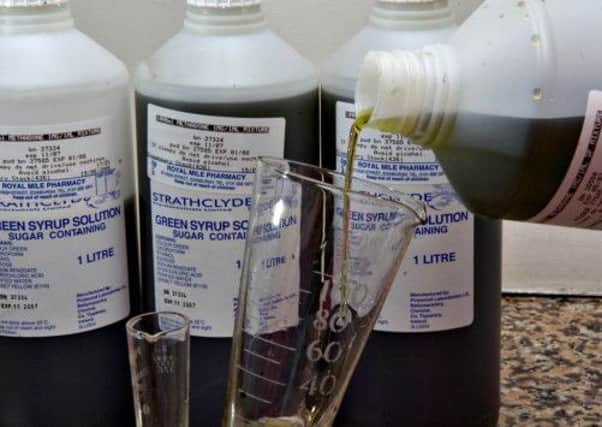Finding a formula for treating addicts


The way which Scotland treats drug addicts has been subject to intense media scrutiny in recent times – and while debate around how public funds are spent is healthy, some of the level of debate has been less so.
It is therefore important that the media recognises the findings of the recent independent expert review into opiate replacement therapy – which confirmed the value of methadone and other substitution therapies.
Advertisement
Hide AdAdvertisement
Hide AdOpiate replacement has a strong evidential base, both in terms of the improvements to a patient’s health and the wider benefits to society. We know a patient in treatment has a longer life expectancy due to the reduced risk of overdose and a reduction in the likelihood of contracting blood-borne viruses such as HIV.
Studies have also shown patients are able to lead more stable and organised lives with large monetary savings to society. This is the key – the cost of opiate therapy has in the past generated sensationalist media coverage but we must consider the value of opiate replacement therapy rather than just the cost.
Addiction patients and healthcare professionals have been subject to criticism relating to methadone treatment. NHS services should always be subject to public scrutiny and evaluation. Debate, however, tends to be destructive when only cost is focused on. Tabloid campaigns can have detrimental and stigmatising effects. There is a danger that due to the stigma associated with treatment programmes, patients will be reluctant to seek help for their addiction. The consequences of this are not only detrimental to society but potentially tragic for those who suffer from addiction. It is not to be forgotten that behind all the headlines and statistics, the lives of individuals and their families are being destroyed by illicit drugs. Any compassionate society should look to support those who are most in need.
The review recommended that methadone and other substitution therapies should remain as treatment options. This does not mean, however, that services cannot be improved. The report highlights a wide variation in standards across Scotland. It is important that a national strategy and service framework is developed to deliver an acceptable minimum standard of care. This should not stifle innovation at local level but a national approach will improve services for all patients. Generalists such as pharmacists and GPs should be encouraged to treat patients with addiction like those who suffer from any chronic illness.
The role of the pharmacist is often overlooked when care plans for patients are developed. The pharmacist is often the healthcare professional who has most contact with patients who suffer from addiction. Many might find it surprising that often the community pharmacist has no formal input into the patient’s treatment. Pharmacists already produce pharmaceutical care plans for patients with chronic conditions such as asthma and hypertension. Utilising these unique skills would allow pharmacists to have a greater input into a patient’s treatment and aid fellow health care professionals to provide a holistic care plan focusing on individual needs.
At the heart of all NHS services the individual needs of the patient must be paramount. There is no rigid formula which will deliver successful outcomes. For example, some patients benefit from long term supervision of their methadone dose as they get more healthcare professional contact and access other services within the pharmacy setting. Other patients will benefit from the freedom of take-home doses allowing them to enter further education or employment. Patients will also have varying views on what they consider to be a positive outcome from their treatment. Many patients will wish to be part of a detoxification programme, to reduce their dose until they no longer require methadone. There are also those who wish a stable methadone dose so they can lead a less chaotic lifestyle. Both outcomes should be seen as positive.
Addiction is a chronic, relapsing illness which can have a devastating impact on the lives of sufferers and their families. There are no easy answers or simple remedies for those with opiate addiction. We believe a multi-disciplinary team of healthcare professionals can deliver patient-focused care in the community. Patients can be empowered to take an active role in their treatment. By involving them in decisions relating to their care we can make further headway in tackling this significant and emotive problem.
We should invest now in both treatment and education – or run the risk of failing some of our most vulnerable people.
• Harry McQuillan is chief executive of Community Pharmacy Scotland. www.communitypharmacyscotland.org.uk